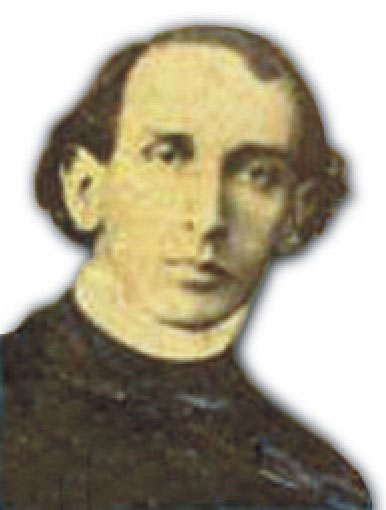3.2.2 Narrative texts, lyrical incursions and other pieces by Tristán de Jesús Medina (1833 – 1886)

Although Tristán de Jesús Medina’s fundamental work is “Mozart Rehearsing His Requiem,” he also wrote other texts that were published and achieved some recognition at the time.
The author pursued an ecclesiastical career and apparently also studied violin. He wrote articles and narrative texts, including novels, the first known of which is “A Tear and a Drop of Dew,” published in its entirety in “El Redactor.”
He also wrote “A Young German” and “Doctor In Faustus,” both of which already reveal a heightened mysticism, at times closer to art than to the very sense of divinity. His piece, “Mozart Rehearsing His Requiem,” was part of the collection of pieces grouped under the title “Tales of a Dilettante,” which remained unpublished after his death.
He also stood out as a sacred orator within the Catholic Church, although his heterodox ideas led him to break with Catholicism at times and move toward Protestantism. This attitude toward the established church was complemented by a liberal political orientation, as expressed in his text, “Fundamental Principles of Political Liberty.”
Regarding lyrics, there are not many pieces that are due to him, among them his sonnet “Noche reveladora” stands out:
“As a child I judged the day as clearly as possible;
A rising sun was my charms,
For before twilight came
Sleep always quickly overcame me.
What amazement then when my soul
The night contemplated for the first time,
And deeper the celestial sphere
Multiplying suns stubbornly…!”
Since then it is not what excites me,
In all love, the clarity that pours forth,
And yes, the feeling that is missing.
And I can only half love you,
Life incomplete without your highest light:
The dazzling night of death.”
In this piece, the author’s mysticism is already intelligible, although he does not expressly mention the figure of God. The antithetical pairs day-night and light-darkness constitute symbols that ultimately reveal their content in the contrast between life and death, which is not antagonistic but rather both constitute attractive sources of light for the lyrical subject, with death being superior, implicitly associated with the definitive communion with divinity.
The versatile work of Tristán de Jesús Medina appeared primarily in Cuba and Spain, in publications such as El Redactor, El Orden, Diario de la Habana, Revista de la Habana, La Verdad Católica, La América, Revista Hispano-Americana, La Discusión, and La Correspondencia. He occasionally wrote under the pseudonyms Tristán Edmain and Andrés Mattini.








